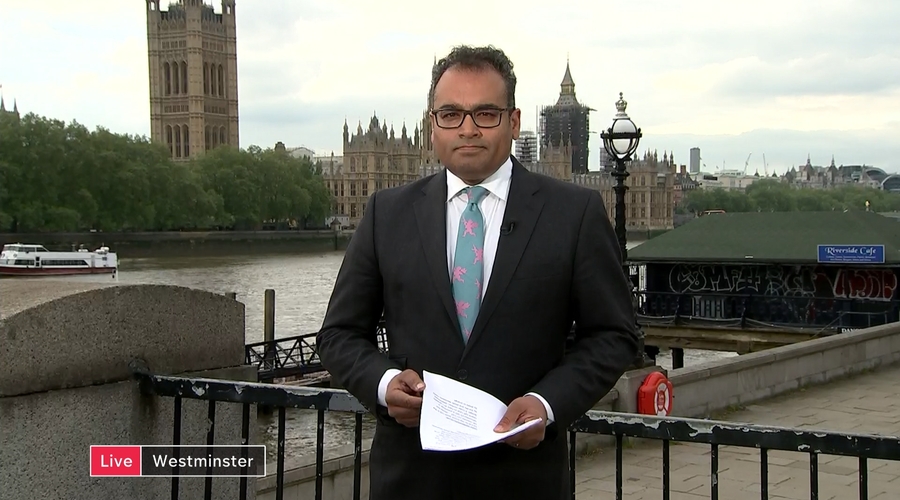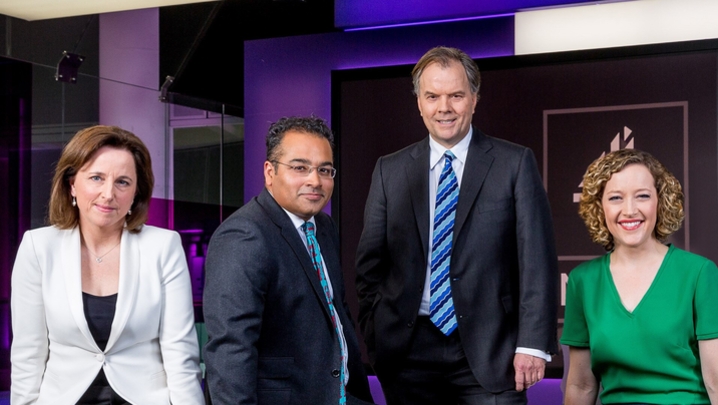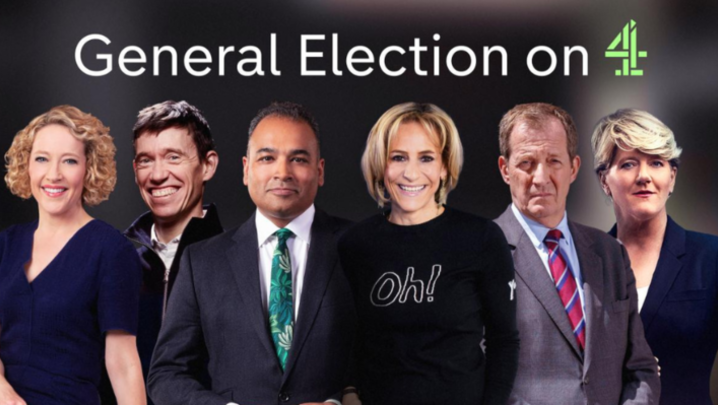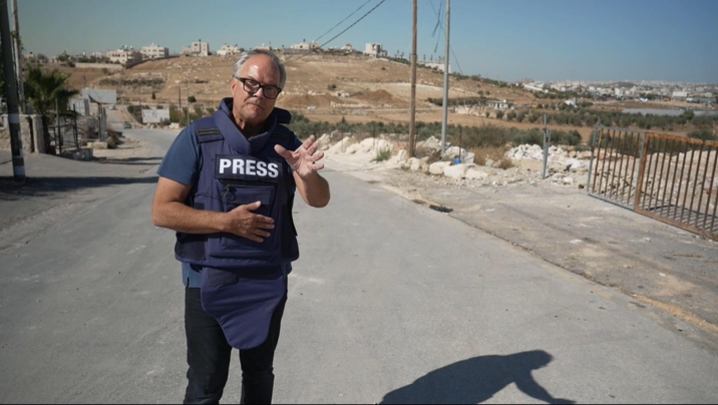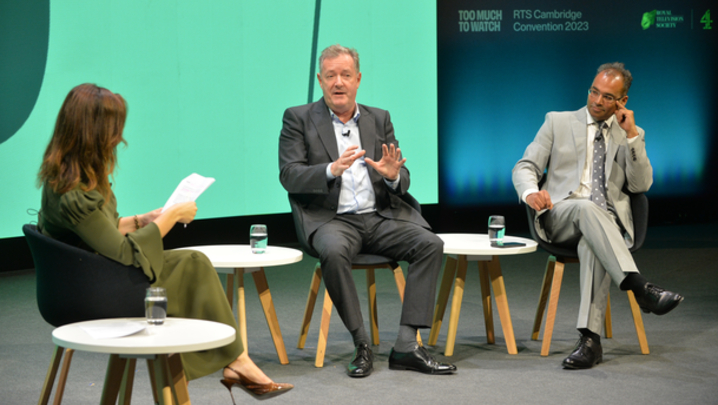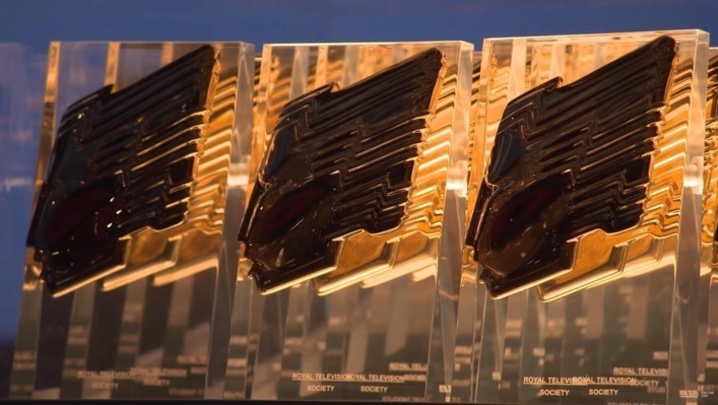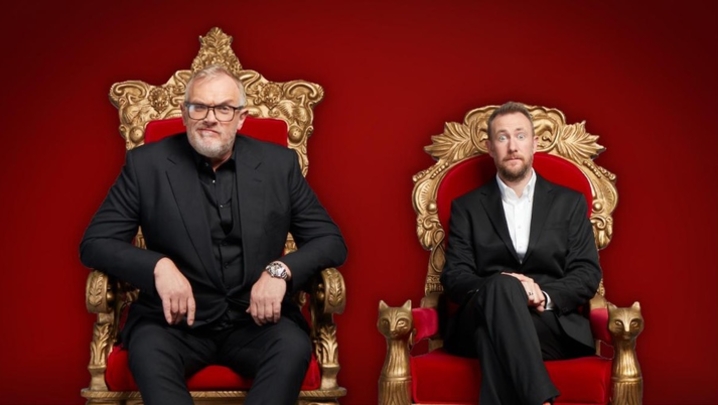When questioned about Partygate in the central lobby of the House of Commons, Culture Secretary Nadine Dorries stuck rigidly to the party line.
“I’m going to wait for the Met to finish their investigation and then let’s talk again,” she told Channel 4 News anchor Krishnan Guru-Murthy.
“Nadine Dorries, thank you very much indeed,” he replied, before cheekily adding: “I look forward to it.”
Thanks to Guru-Murthy’s typically tenacious probing and Dorries’ meagre defence of Boris Johnson (who had just told a blatant lie in Parliament that Keir Starmer failed to prosecute Jimmy Savile), it didn’t take long for the interview to go viral.
But Guru-Murthy says he was not aware of the future internet hit on his hands. In fact, despite a number of viral moments over his 34 years as a reporter, it is not something he ever aims to create lest it skew the interview. His job, he says, is simply “to ask the right questions.” And it is clearly a job he still relishes.
It is also a job he is clearly very good at. After previous nominations in 2009 and 2019 he was finally awarded Network Presenter of the Year at the RTS Television Journalism Awards in 2022. According to judges, he has become “one of the outstanding presenters of his generation.” But he looked pleasantly surprised, if a bit bashful, when accepting his award, joking during his speech that: “I thought I was destined to always be a bridesmaid in this category and never a bride.”
He says that he loves the range of interviewing he does at Channel 4, that it was something he deliberately sought to do. It was the “amazing access to people” and the permission to ask them any question he wanted that made him fall in love with the job in the first place.
At the age of 15, Guru-Murthy was invited to a recording of Open to Question, a BBC Two current affairs programme that recruited “lippy kids” for an audience to grill a public figure. As the lippiest of the lippy, producers found they could turn to him whenever the debate dried up, so they kept asking him back.
Upon leaving school, Guru-Murthy had a place at Oxford to study medicine but it was during his gap year that he caught the broadcasting bug. After just two weeks of work experience at the BBC, he was offered the job as lead presenter of Open to Question. He signed a two series contract the week before he received his A level results.
His first ever recording was with Jimmy Savile in September of that year (an episode that makes for remarkable viewing in hindsight, as the young audience scrutinises Savile, his charity work and sexual promiscuity), followed by a then Labour Deputy Leadership candidate John Prescott. What would have been a baptism of fire for most budding presenters Guru-Murthy took in his stride, which he puts down to the “confidence of youth.”
“I’d look at David Dimbleby [the former Question Time presenter] interviewing somebody and go: ‘Yeah, I could do that.’”
“But also I used to do a lot of debating, drama and music, so I always enjoyed performance. And I think initially I saw television as an extension of that.”
As well as Dimbleby, Guru-Murthy namechecks broadcasters Brian Walden and Robin Day as strong influences. Walden for the “research and forensic nature” of his interviews, Day for his “theatre and healthy disregard for authority.”
When the gap year was up, he switched his degree from medicine to PPE and stayed on part time at the BBC. His studies suffered and come final year, his tutors had persuaded him to quit his job. But just before term started, Newsround came calling.
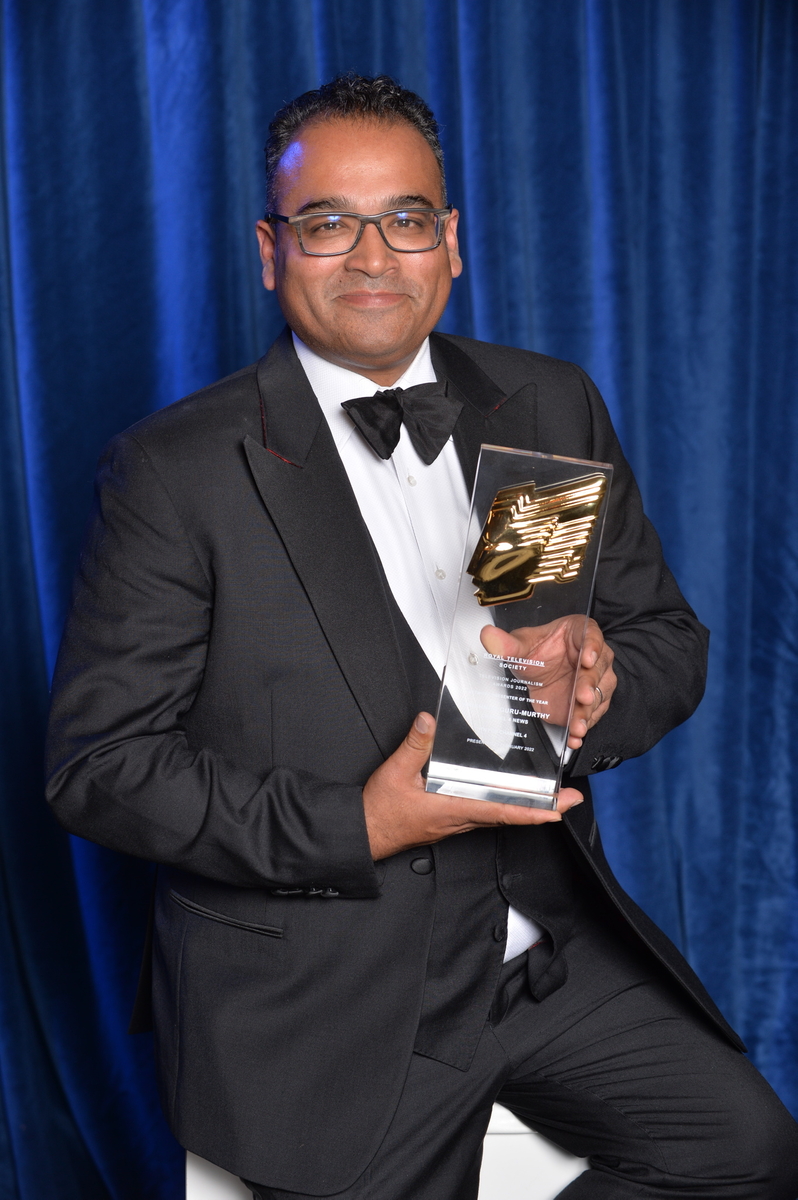
The BBC children’s news programme, Guru-Murthy says, “was a brilliant training ground for me because you really had to go back to the basic building blocks of television journalism. You had to make your scripts absolutely clear and understandable to a child.”
The programme turns 50 in April this year and he speaks glowingly of its impact. “It is a really important programme and has been for decades in terms of introducing people to the news and explaining it.”
By “people” he means those of all ages, as when he joined Newsround in 1991, it was very much a mainstream programme, with half of its audience being adults. Its 5.00pm slot on BBC One obviously helped, but so too did the Newsround ethos: to assume less and explain more. He says it is one he still abides by.
“Television forces you to pigeonhole yourself,” says Guru-Murthy, but early on he dabbled in light entertainment, even co-presenting The National Lottery Live with Anthea Turner on a Saturday night when the show would regularly grab 15 million viewers. It was “great fun,” he says, and culminated at the Leeds City Variety Theatre where in front of 18 million viewers he held hands with Danny La Rue, in a 1930s outfit, singing "Down at the Old Bull and Bush.”
Nowadays, besides the odd cameo and disastrous Bake Off appearance, it is strictly news, but the three electric guitars lining the wall behind him as we speak on Zoom hint at an outlet for his inner entertainer. He says he once formed a band with his ex-Channel 4 colleague Peter Barron and friend Tim Hincks (co-CEO of Expectation TV) and together they played covers at his wedding 16 years ago.
Guru-Murthy joined Channel 4 News in 1998 and is now its longest-serving presenter after Jon Snow retired in December 2021. “Obviously we miss him... Although he did come to a party last week so I have seen him relatively recently,” he laughs.
Having been in the game for so long, he says it has taught him a lot “about how the world works,” and that the old aphorism that “history repeats itself” rings true. Even now there are patterns he sees in the way UK politics is playing out: be it Keir Starmer borrowing from New Labour or the Conservative Party’s re-evaluation of Boris Johnson, echoing that of Margaret Thatcher.
But he remains reticent about his personal beliefs and for good reason: “As soon as you give away your opinions, it weakens your ability to surprise your audience and your interviewees. More importantly, if your interviewees know what you think, they can always throw it back."
Such reticence, however, has not stopped his political interviewees from “convincing themselves that we’re just there to trip them up.” Which, he asserts, “we’re genuinely not.” His weekly podcast, Ways to Change the World, was partly borne out of this frustration.
The news interview, says Guru-Murthy, “is too short, too Punch-and-Judy. So many politicians are media trained, and so you often won't get very far in a four or five minute political interview. It’s become too adversarial and too predictable.” The podcast, much more intimate and longform, enables the exact opposite approach. Instead of “challenging everything that people say all the time,” he can simply explore their ideas, which “just makes life fun.”
He says he has a book in the pipeline based on the ideas he has heard from his impressively wide range of guests. A quick look at the archive turns up all of doctor turned memoirist Adam Kay (This Is Going To Hurt), former Prime Minister Gordon Brown, YouTube sensation KSI and actor Jameela Jamil.
That is not to underplay the vital role of the accountability interview. Especially when, as Guru-Murthy notes, UK politicians have somewhat departed from the democratic norm of submitting themselves to regular “duffings up” by the media, a symptom perhaps of the general tenor of debate, more polarised and personal than it was before. But he spots a silver lining amid the instability.
“Because politics is exciting and in flux and unpredictable, and we don't really know what direction anything's going in at the moment, I think politicians recognise that they need to come out and make the case. And that means going on programmes that they might normally prefer to avoid.”
Programmes, he means, like his own Channel 4 News. And he will no doubt be looking forward to it.
"The Prime Minister tells the truth."
Culture Secretary Nadine Dorries defends Boris Johnson after the publication of the Sue Gray report and following Met police reports that they have 300 images pertaining to Downing Street parties. pic.twitter.com/SX2x6TfF40
— Channel 4 News (@Channel4News) January 31, 2022

